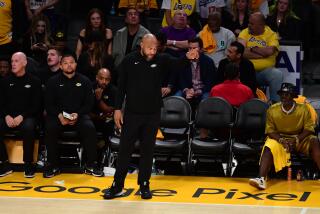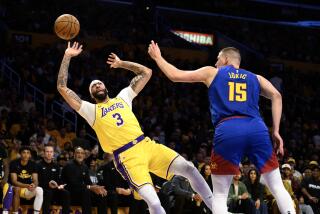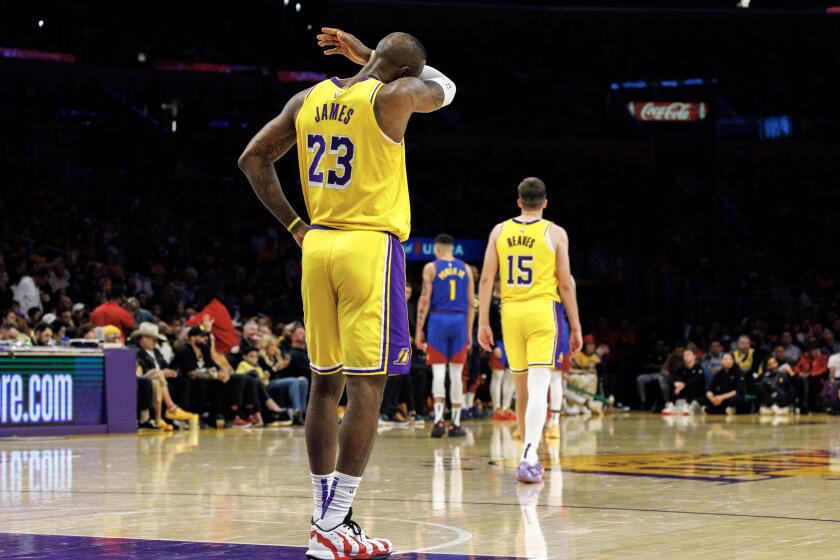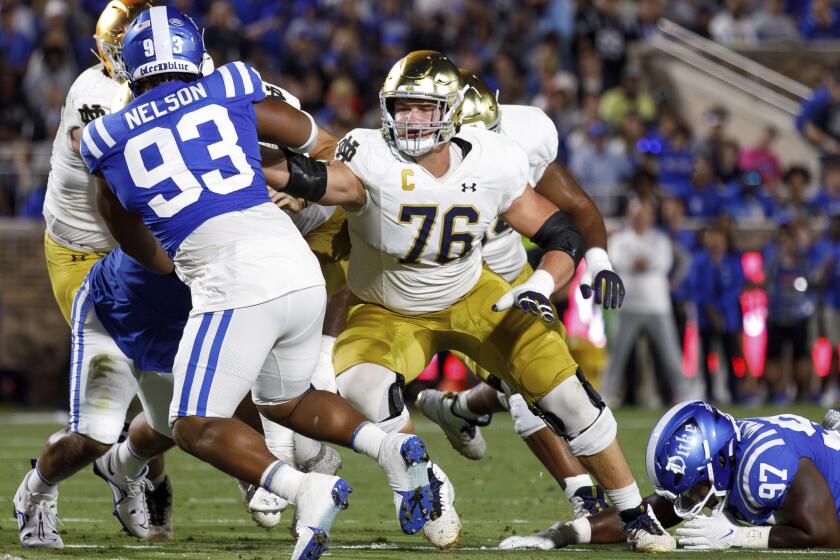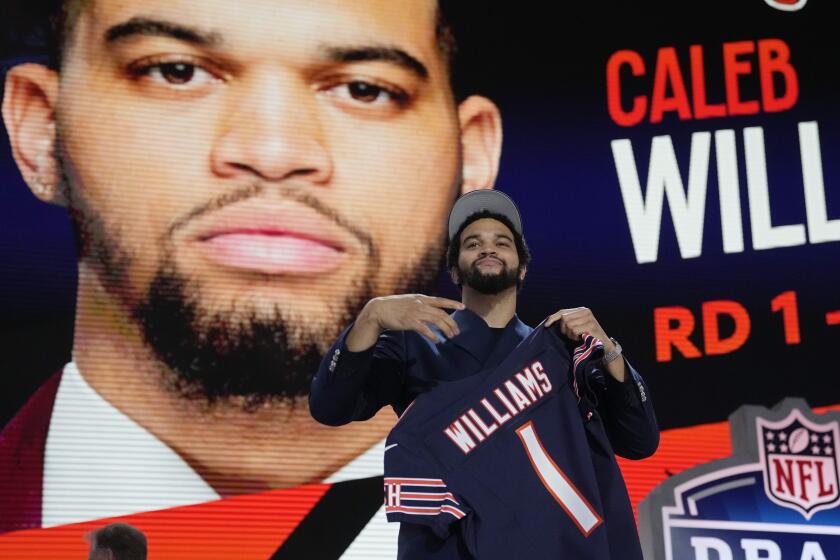Pioneer in Sports Journalism
Will McDonough, a Boston Globe sportswriter and columnist for 40 years, died late Thursday at his home in the Boston suburb of Hingham, Mass. He was 67.
Best known nationally for his work on two network NFL pregame shows, McDonough had a mild heart attack early last month, followed by angioplasty -- a procedure to open clogged blood vessels. He also had suffered a mild heart attack in 1990 and had battled thyroid cancer in the late 1990s.
Earlier Thursday, he had been at Massachusetts General Hospital for a stress test but appeared fine afterward. He went home, taped the Sporting News radio network show he does with Bill Parcells that is broadcast nationally on Friday nights and later died while watching television. The hospital declined to comment on the cause of death.
McDonough was a pioneer in sports journalism, becoming the first sportswriter to work full time for a newspaper while being under contract to a major television network. He was hired by CBS to work on “The NFL Today” in 1986 and continued to work for the Globe.
Vince Doria, the sports editor of the Globe at the time, said, “CBS was offering him three times what we were paying him, and that was to work 18 to 20 Sundays a year. It was either let him work both jobs or lose him. It was a hard decision, but I chose to let him work both jobs and was roundly criticized for it by many in the newspaper business.
“In those days, newspapers were adamant about not letting their people work in broadcasting. But usually you were talking about a $20-a-day job in local radio or something like that. We were talking about significant money here.”
McDonough, who spent three years at CBS and then nearly a decade at NBC, paved the way for many, among them Globe colleagues Peter Gammons and Lesley Visser, and others such as ESPN’s Chris Mortensen and Sports Illustrated’s Peter King, to cross over from print media to broadcasting.
“These days, just about every major newspaper has someone working in television or radio,” said Doria, who also has made the transition to television, albeit behind the scenes. Doria, who was the sports editor of the Globe from 1978 to ‘89, has been at ESPN since 1992. He is a vice president and director of news.
Responsible for getting McDonough into television is Terry O’Neil, former executive producer of sports at both CBS and NBC. He and McDonough became friendly while attending NFL owners meetings in the early 1980s.
“I was impressed with just how many owners, coaches and league officials Will knew,” O’Neil said Friday from his home in New Orleans. “He had access to information far better than anyone we had in television.”
O’Neil convinced Neal Pilson, the president of CBS Sports at the time, and Ted Shaker, the producer of “The NFL Today,” that CBS should hire McDonough.
In 1989, when O’Neil was named executive producer at NBC Sports, he said McDonough was the first person he called.
“Will was a little naive about the television busi- ness,” O’Neil said. “I told him I wanted to hire him and he said, ‘Sure, I want to work for you.’ I explained to him he was under contract to CBS and they probably had the right of first refusal. He didn’t know what that meant. I told him it meant that CBS could match any offer we made. He went to Neal Pilson and worked it all out in about 30 seconds.”
At NBC, McDonough worked on Bob Costas’ pregame show. “Will knew the league up and down and broke a lot of stories during the years we worked together,” Costas said.
And, according to Costas, McDonough had natural instincts for television.
“Not everybody who is a good writer can make the switch to television,” he said. “Will did. If you needed 15 seconds from him, he’d give you 15 lucid seconds. If you needed 45 seconds, he’d give you 45 lucid seconds.
“As a host, I always felt comfortable throwing it to him. I always knew he could handle it, and that wasn’t always the case with everyone.”
McDonough, who covered every Super Bowl, primarily wrote about the NFL for the Globe. He retired from the newspaper two years ago but continued to write a weekly column.
“He was the best reporter of sports I ever worked with,” the Globe’s Dan Shaughnessy told the Associated Press. “He had better connections, better sources -- he was the ultimate newspaperman.”
McDonough was born July 6, 1935, the youngest of nine children of Irish immigrants. He grew up in a tough neighborhood in South Boston.
“He was a tough Boston Irishman,” Costas said. “He was a tough guy, but in the best sense of what that means.”
McDonough gained national attention in 1979 when he punched a football player, cornerback Raymond Clayborn of the New England Patriots, in the locker room after a game.
The way the story goes, Clayborn elbowed McDonough in the locker room. They exchanged words and Clayborn was tapping McDonough on the chest when the player’s hand slipped and poked the reporter in the eye.
“McDonough swung and landed a punch,” Doria said Friday. “Clayborn slipped and fell backward and all kinds of people jumped in to break it up.”
But soon the story was that Will had landed a combination punch and knocked out Clayborn.
“It just added to the legend,” Doria said.
McDonough’s son Sean is a Boston Red Sox play-by-play announcer who also works for ABC and ESPN, and formerly worked for CBS, where he was paired with Terry Donahue on college football. Another son, Terry, is a scout for the Baltimore Ravens. McDonough also is survived by wife Denise, daughters Cara and Erin and son Ryan.
A public wake is scheduled for the Fleet Center on Tuesday and a funeral service at St. Augusta Church in South Boston on Wednesday.
More to Read
Get our high school sports newsletter
Prep Rally is devoted to the SoCal high school sports experience, bringing you scores, stories and a behind-the-scenes look at what makes prep sports so popular.
You may occasionally receive promotional content from the Los Angeles Times.
